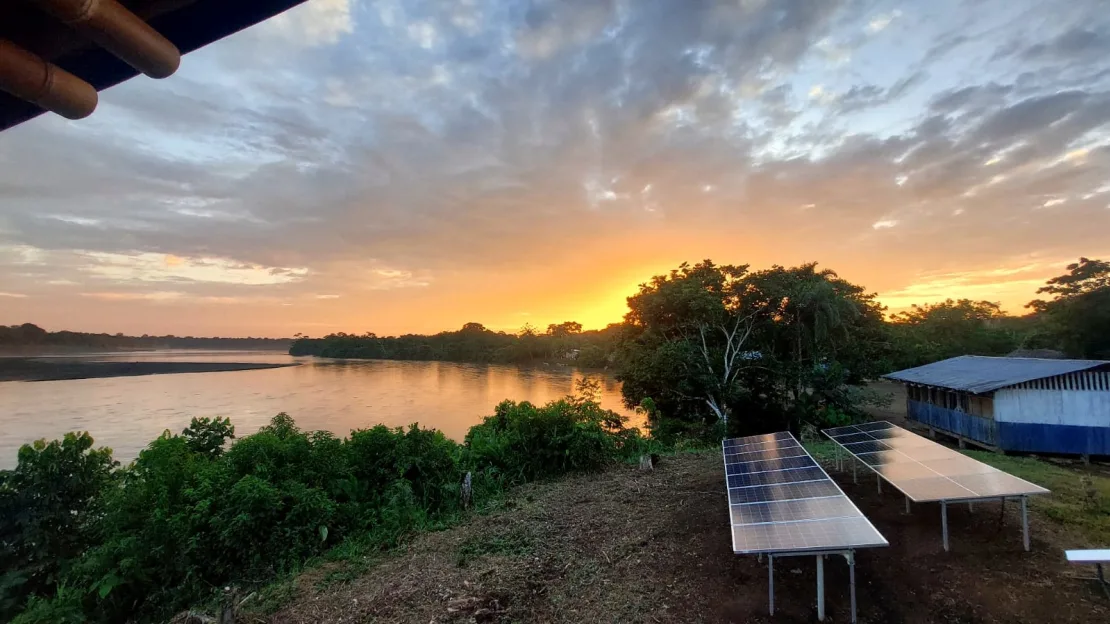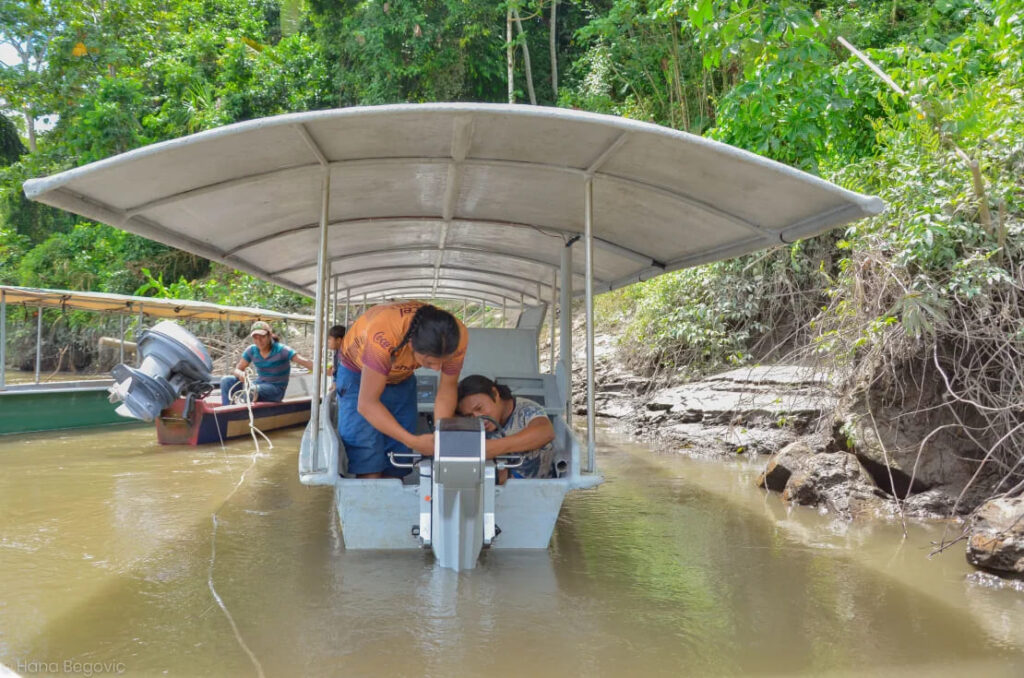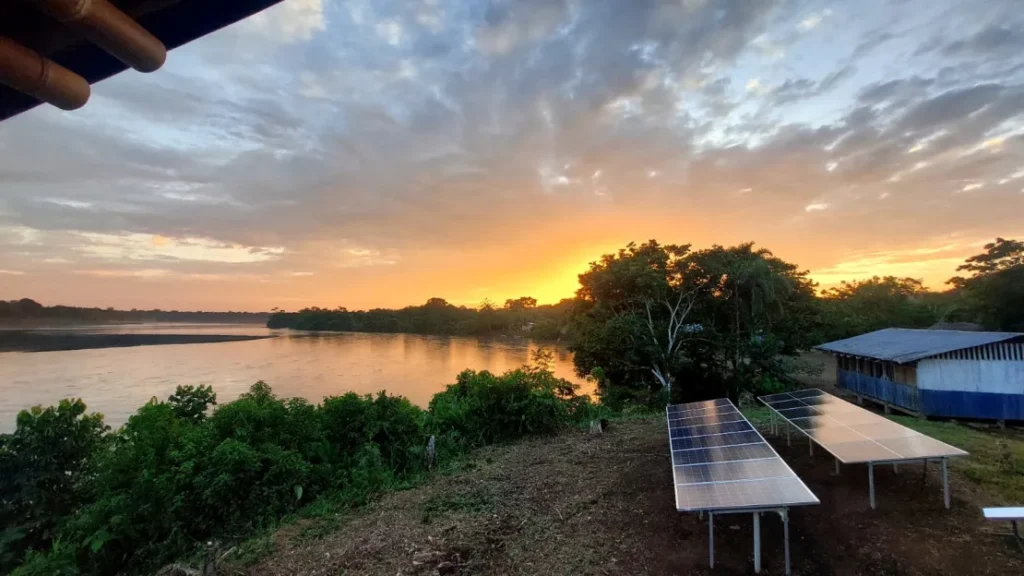

In a remote region of Ecuador’s Amazon rainforest, river transport is far more prevalent than road travel. Boats glide along the Wichimi River, a broad channel winding through the thick jungle, with the Ecuadorian sun powering these quiet vessels.
Twelve indigenous Achuar communities in eastern Ecuador, near the Peruvian border, are using five boats outfitted with sleek solar-panel roofs. These boats, provided by Kara Solar—a local non-profit—are not only managed and maintained by the Achuar but are also transforming daily life by providing transport for education, health services, and eco-tourism.
Previously, the Achuar relied on gasoline-powered boats, but the fuel had to be flown in from Quito, increasing costs and carbon emissions.
Angel Wasump, Kara Solar’s operations director and a member of the Achuar community, noted, “Local people are increasingly using gasoline motors that heavily pollute the river. Since the arrival of the solar boats, families have completely abandoned these motors.”

Kara Solar’s founder, Oliver Utne, moved to Ecuador from Minnesota 16 years ago after college. While working in a remote Amazonian community owned by the Achuar, he witnessed their challenges in accessing electricity and transportation. This experience led him to see technology as a tool for preserving Achuar culture and territory.
“Before my visit, I viewed technology as a threat to indigenous cultures,” Utne told CNN. “The Achuar demonstrated their desire for autonomy and agency, which inspired me to help empower them.”
Utne returned to the US, studied solar energy, and became a solar installer. He then went back to the Amazon to work with the community on optimizing solar technologies.
Initially, the idea of solar boats seemed far-fetched. However, a 2013 study conducted with MIT and two Ecuadorian universities confirmed that solar-powered boats could work if designed properly, requiring fewer solar panels to move a lot of people.
The first solar boat, named “Tapiatpia” after a mythical electric eel in Achuar folklore, was completed in 2016. Utne emphasized that the Achuar community was involved throughout the three-year design process.
The boats come in various sizes, the largest accommodating up to 20 passengers. They can travel at speeds of up to 12 miles per hour and cover up to 60 miles on a single charge. When needed, they can be recharged at nine solar-powered stations along the river, which also provide electricity for schools, internet, computer labs, and eco-lodges.
Launched in 2018, Kara Solar is staffed by Achuar members and estimates that its boats have completed over 3,000 trips, transported more than 1,000 passengers, and traveled over 450 kilometers per month. Their primary uses include school transport and eco-tourism.
“These boats belong to the indigenous people, and we are here to support them,” said Utne. “We’re accompanying them, providing advice, and sharing lessons learned across the Amazon.”
In addition to cutting carbon emissions, the silent boats allow eco-tourists to observe wildlife without disturbing it.
“The boat represents a tangible vision of conservation,” said Wasump. “It aligns with our cultural values and offers a new perspective on development.”

Kara Solar’s mission includes providing technical training in solar installation, led by Achuar technicians in their native language. The organization has established four solar centers in Ecuador to support education and is applying this model in other countries. In November 2023, Kara Solar partnered with the Wampís Nation in northern Peru to install solar boats and centers, funded by the Welsh government.
In 2025, Kara Solar plans a new project on the Kapawari River in eastern Ecuador to replace 50 gasoline boats with solar-electric ones, connecting four remote settlements and aiding in the conservation of endangered pink river dolphins.
Cheryl Martens from the Institute for Advanced Studies in Inequalities at San Francisco University of Quito believes the model has potential for broader application. “Kara Solar’s approach could expand beyond river transport systems, offering sustainable solutions in some of the most isolated Amazon regions,” she said.
Nantu Canelos, Kara Solar’s executive director, emphasizes the importance of community involvement. “True progress comes from the Achuar leading with our support,” he said. “We invite everyone to join us in this effort to address the risks facing the Amazon, as our actions are critical for both Indigenous communities and the world.”
Canelos also calls on the global community, particularly young people, to recognize the significance of their actions in the Amazon and their impact on the planet.

Leave a Comment